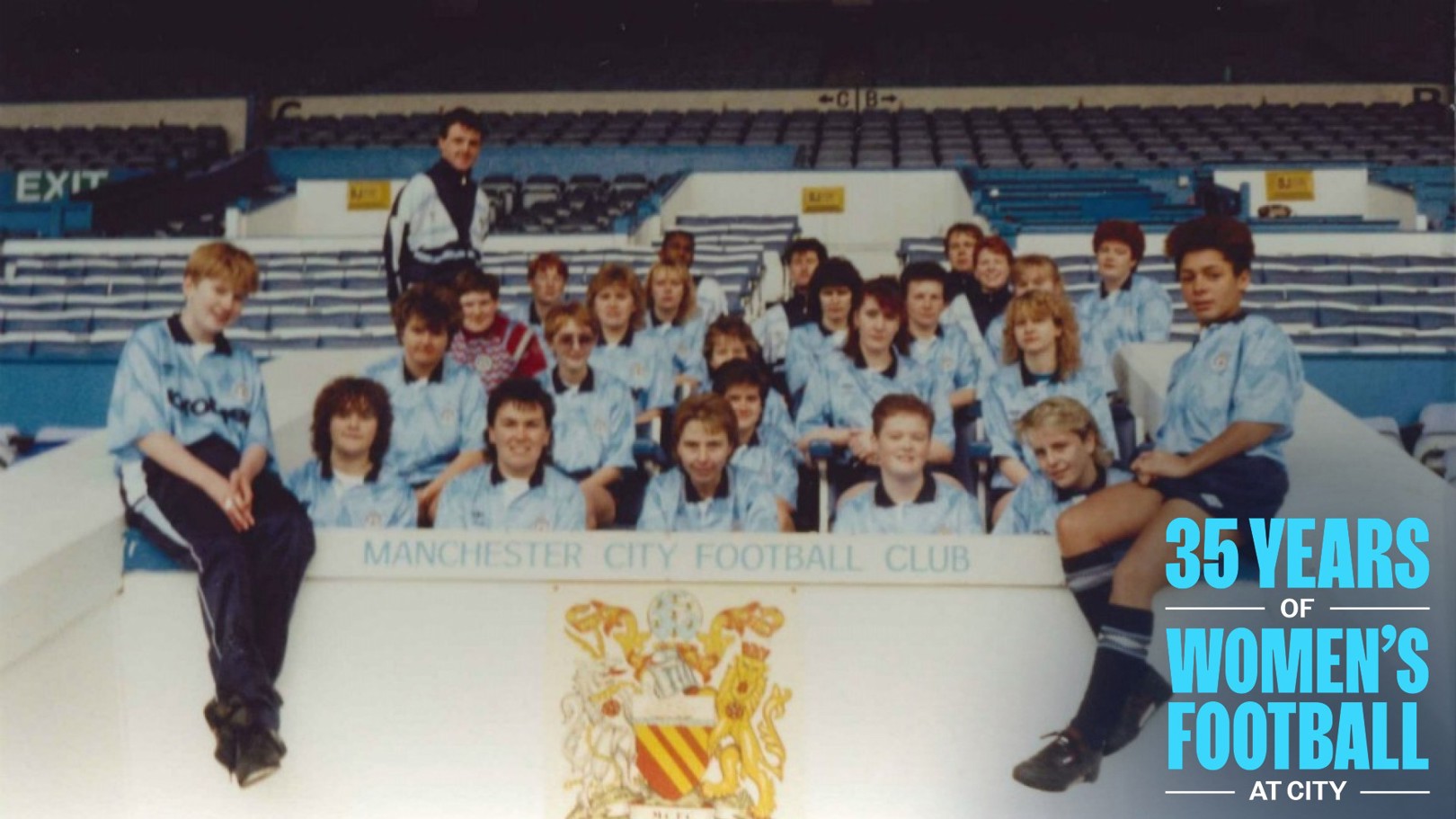A friendly fixture, City ran out 4-1 winners at Boundary Park, a stadium which, at the time, held over 20,000 spectators and would be hosting first division football within three years.
It marked the beginning of an exciting future for the team, who had been formed on the back of a City in the Community initiative, led by our first manager, Neil Mather.
A newspaper article published in September 1988 mentioned the desire for a women’s team, with practice sessions taking place across October and November, before the Oldham fixture was organised.
Club historian Gary James was on the terraces at Boundary Park that day for what he believes was a watershed moment for women’s football at City.

“It did feel very significant because it was at Boundary Park, a proper football league ground,” he reflects.
“It wasn’t something that was advertised widely, it was basically the players, their family, friends and one or two others but it did feel significant, and it felt right.
“It was a really cold day, as it often is at Boundary Park, but I remember there was a bit of pride there as well with the Club being represented.
“It was pioneering in terms of football league clubs getting involved in Women’s football.”
A brace apiece from Donna Haynes, nicknamed ‘Mara-Donna’ due to her ability and playing style, and Heidi Ward saw City earn a deserved victory.
Despite a mix of abilities, Ward, who was playing for local Women’s team Redstar while also finishing her A-Levels, wasn’t going to pass up the opportunity to represent the team she supported.

Speaking to Gary James in his book Manchester City Women: An Oral History, she added: “We had a hand-me-down kit from the youth team so it didn’t fit properly… but the opportunity to play football in a City shirt was a massive draw which I couldn’t turn down.”
Hand-me-down kit aside, Neil Mather’s team had laid down a marker and, after taking part in several friendlies over the following months, would join the North West League Second Division in 1989.
It meant some of the players, including Ward, had a decision to make. With City now playing competitive matches, they would no longer be able to represent the Club while also playing league football with other local teams.
Nonetheless, it was an easy choice for some, such as Lesley Wright, who would join the team soon after that inaugural match against Oldham and remains a City season ticket holder to this day.

“Just being able to play football at a time when most people thought women shouldn’t or couldn’t was special,” she explains.
“Being part of a team that I love and support was the best thing ever for me.
“There were some players who didn’t support City, but it didn’t matter. Everything about it that’s grown from there, the people I’ve met through that, we still keep in touch now. We made huge friendships.”
Across the following 15 years, City would gain three promotions, endure one relegation and, in 1998, experience an unbeaten season en route to a league title.
We would find ourselves in the FA National Northern Division from 2001 until 2012, when City gained promotion to the FA Women’s Premier League (Northern Division), two years before our official relaunch as a professional outfit.
Keep across mancity.com and the official Man City app for further stories celebrating those early years following that first match on 26 November 1988, including testimonies from several members of that original side.






